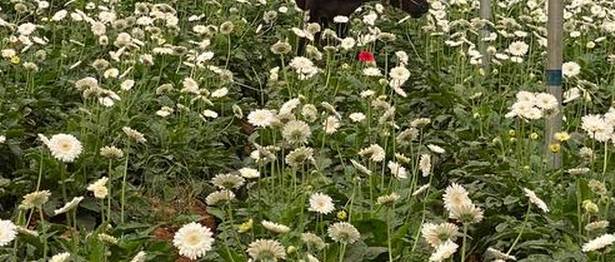Cows being allowed to feed on flower plants inside a greenhouse near Bengaluru Floriculturists and traders suffer heavy losses as there is no return on investment Mitesh Patel, a grower of flowers at Badarkha, a village near Ahmedabad, is desperate for an end to the lockdown. “Otherwise, my rose plants will get burnt down in this heat. My irrigation motor is in disrepair and I am unable to find a technician because of the lockdown. Somehow, I am managing to get water from other sources to keep the plants alive, but that isn’t sustainable. And if a plant dies, it will take at least six months for a substitute plant to bear flowers,” Patel said. In more than a decade into floriculture, Patel has never before gone through the painful chore of dumping the entire harvest of fresh pink desi roses and marigold into a waste pit, as he has done daily for the past 17 days. Down the drain “We have to harvest the flowers because leaving them on the plant to rust will eventually impact productivity. It entails labour cost and we’ve to dump the entire harvest into a pit since we can’t sell a single piece. This has been the routine for many days now. There is no income. We are just watching our money going waste,” said Patel, who grows flowers on approximately seven acres. About 25 km away in Bhetawada village, where floriculture is the only source of income for about 100 farmers, they are counting the days under the lockdown. Bolt from the blue Piyush Makwana, a jasmine grower narrates how he was expecting a bountiful crop this year and the lockdown has dashed all his hopes. “The jasmine production had just begun in mid-March. And the market prices were nearly 40 per cent more than last year’s. But just around that time, this lockdown was was declared and the business collapsed completely,” he said. Jasmine prices ruled at ₹400 a kg in the wholesale markets of Ahmedabad before the lockdown, while it was ₹250-280 per kg last year. “Unlike rose, which is […]






